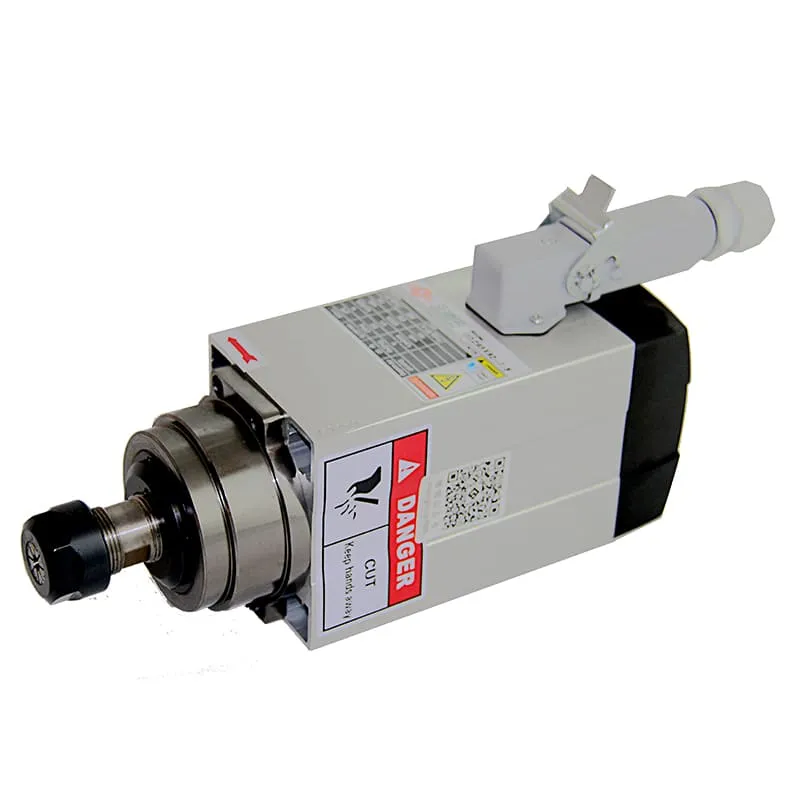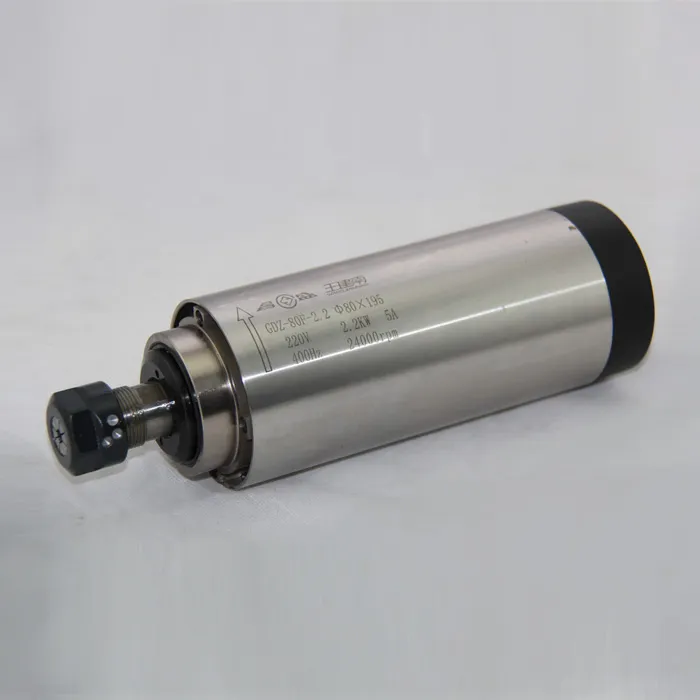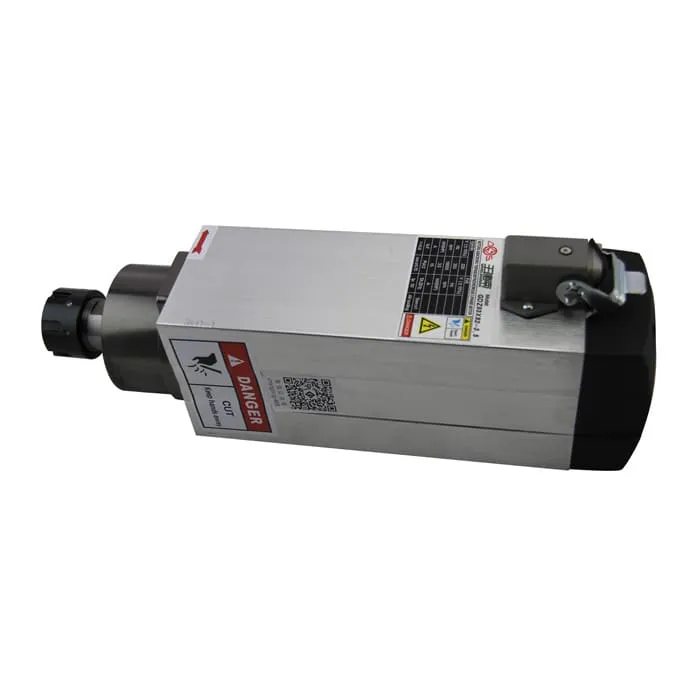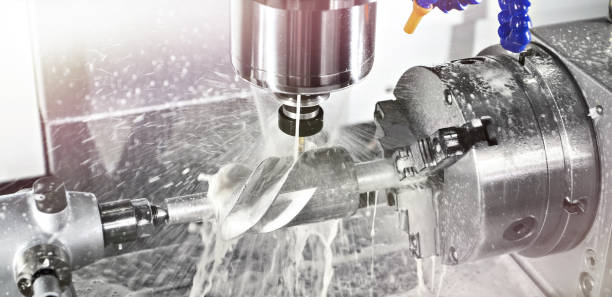How Much Does a Small CNC Machine Cost?
CNC machines are increasingly popular among hobbyists, small businesses, and professional workshops. As their use expands, many wonder: how much does a small CNC machine cost? To answer that question, we need to look at several factors, including the type of machine, its capabilities, the materials it can handle, and the features that might affect the overall price. This guide will help you understand the key considerations involved in purchasing a small CNC machine, from price to performance, so you can make an informed decision that suits your needs and budget.
What is a CNC Machine?
CNC (Computer Numerical Control) machines are tools that use computer-generated code to control and automate the movement of machinery and tools to create precision parts. CNC machines can perform tasks such as cutting, drilling, engraving, and milling on a variety of materials, including metal, wood, and plastic. There are different types of CNC machines, including CNC routers, mills, lathes, plasma cutters, and laser cutters.
The price of a CNC machine depends on its type, size, and the complexity of the tools and software included. Understanding what a CNC machine is, and what you intend to use it for, is crucial in determining the right price point for your budget.
Types of CNC Machines and Their Cost Ranges
When it comes to small CNC machines, there are several types to choose from. Below, we explore the different types, their functionalities, and their cost implications.
| Type of CNC Machine | Average Cost | Typical Use Case |
|---|---|---|
| CNC Router | $1,000 – $5,000 | Woodworking, hobby projects |
| CNC Milling Machine | $3,000 – $15,000 | Metal cutting, precision part manufacturing |
| CNC Lathe | $2,000 – $10,000 | Turning operations, cylindrical parts |
| CNC Plasma Cutter | $2,500 – $10,000 | Metal cutting, sheet fabrication |
| CNC Laser Cutter | $500 – $7,000 | Engraving, light material cutting |
The price range for small CNC machines can vary significantly based on the type and its capabilities. For hobbyists, an entry-level CNC router might suffice, while small businesses might need a more advanced CNC mill or plasma cutter for increased capabilities.
Factors Influencing CNC Machine Cost
The cost of a small CNC machine can be influenced by several factors. These include the type of machine, its features, brand, and specifications. Let’s look at these factors in more detail:
1. Type of CNC Machine
Different types of CNC machines are built for specific purposes. The price you pay depends on what the machine is designed to do. For example, a CNC router designed for woodworking will be less expensive than a CNC milling machine used for heavy metal cutting.
- CNC Routers: These are often used for wood, plastics, and light metals. They are generally less expensive because they are simpler machines.
- CNC Mills: Milling machines are used for precision cutting of hard materials, such as metals. They are more expensive due to their precision and complexity.
- CNC Plasma Cutters and Laser Cutters: These machines are used for cutting sheet metals and are priced somewhere in between routers and mills. Laser cutters, particularly, are popular among hobbyists for engraving.
Internal Link:
For compatible spindle options, you can check our CNC Router Spindles which are suitable for a range of materials and applications.

The ER20 Square Air-Cooled Spindle is great for CNC routing tasks, offering durability and precision.
2. Machine Size and Work Area
The size of the CNC machine and its work area are also significant factors that influence cost. Larger machines capable of handling big projects and extended materials are generally more expensive. If you’re a hobbyist working on smaller projects, you might opt for a smaller machine that takes up less space and has a smaller work area, making it more affordable.
Small CNC machines generally have a work area between 12″ x 12″ to 24″ x 24″. For professional use, you might need a larger machine capable of handling bigger pieces. The larger the machine, the higher the cost, as you are paying for more versatility and extended work capabilities.
3. Precision and Speed Requirements
The precision level of the CNC machine and its speed capabilities can also have a major impact on cost. Machines that offer high precision and speed are more expensive but can save a lot of time and material costs in production. For example, a CNC router designed for woodworking might not need the same precision as a CNC milling machine designed to cut metal parts.
- Hobbyist Machines: Lower cost, slower speed, less precise.
- Professional Machines: Higher cost, faster speed, extremely precise.
4. Brand and Build Quality
The brand and build quality of the CNC machine are other factors that determine its price. Reputable brands with a track record for producing durable and reliable CNC machines tend to have higher prices compared to lesser-known manufacturers. Investing in a high-quality machine can lead to lower maintenance costs and a longer lifespan, which can ultimately save you money over time.
Internal Link:
Explore our range of 2.2KW ER20 Air-Cooled Spindles which provide excellent durability and performance for CNC machines used in small business setups.

Our ER20 spindles are perfect for both hobbyist and professional CNC routing projects.
How to Determine the Right CNC Machine for Your Budget
Before you decide on purchasing a small CNC machine, there are several questions you need to consider to determine the right machine for your budget and needs.
What Type of Projects Will You Be Working On?
The type of projects you intend to work on will determine the type of CNC machine you should invest in. Are you mainly working with wood, metal, or plastics? A CNC router is suitable for woodworking projects, while a CNC milling machine is better for working with metals. Understanding your material needs will help you narrow down your choices.
Will You Be Working as a Hobbyist or for Business?
The distinction between hobbyist and business use is crucial when choosing a CNC machine. Hobbyists may want a smaller, less expensive machine, whereas businesses may need a machine with a larger work area, higher speed, and greater versatility to handle multiple projects.
- Hobbyists: Smaller CNC routers or laser cutters are often sufficient, with costs ranging from $500 to $3,000.
- Small Businesses: If you intend to make money from CNC machining, you might need to invest in a machine that offers higher precision and faster speeds, typically costing between $5,000 and $15,000.
Are There Additional Costs to Consider?
Apart from the initial cost of the CNC machine, there are several additional costs that you should be aware of, such as:
- Tooling Costs: End mills, bits, and other tools can add up.
- Software Costs: CAD and CAM software are necessary to operate the CNC machine and may require additional investment.
- Maintenance and Repairs: CNC machines require regular maintenance to stay in optimal condition.
- Training: If you’re new to CNC machining, there might be costs associated with training and learning how to properly use the machine.
Internal Link:
For a powerful and precise spindle to pair with your CNC machine, check out our 3.5KW ER25 Air-Cooled Spindle, perfect for achieving professional results.

The 3.5KW ER25 spindle ensures reliable and powerful performance for a wide range of CNC applications.
FAQs on Small CNC Machine Costs
1. What is the cheapest type of CNC machine?
The cheapest type of CNC machine is generally a CNC laser cutter, which starts at around $500. These are ideal for light materials and engraving.
2. How much does a good quality CNC router cost?
A good quality CNC router can cost anywhere between $1,000 to $5,000 for hobbyist-grade models and up to $15,000 for more advanced models suitable for professional use.
3. Are there financing options available for CNC machines?
Yes, many CNC suppliers and financing companies offer leasing or financing options for purchasing CNC machines. This can make it more manageable for businesses to acquire high-quality equipment without the large upfront cost.
4. What factors most influence the cost of a CNC machine?
The most significant factors affecting the cost are machine type, size, precision, brand, and build quality. The specific capabilities you need will also influence the price.
5. Can I upgrade my CNC machine later?
Yes, many CNC machines are modular, meaning you can add features like an automatic tool changer or upgrade your spindle to increase capabilities over time.
Conclusion
The cost of a small CNC machine varies widely depending on several key factors, including type, size, precision, and brand. Understanding your needs—whether for hobbyist use or a small business—is crucial to selecting the right CNC machine that fits within your budget. It’s also essential to keep in mind the additional costs, such as tooling, software, and maintenance, when calculating the total investment required.
Whether you need a CNC router for woodworking, a milling machine for metal, or a laser cutter for engraving, there’s a machine out there to suit your specific needs and budget. If you’re ready to take the next step in purchasing a CNC machine, make sure to explore our selection of high-quality spindles and accessories that will help you achieve professional-level results. Visit Spindle Motor Shop to find the perfect CNC solutions for your workshop.

